Champion of Serbia now sweeps streets and lives in a shack: Moving story of a boxer KO'd by life
During the time when Rocky Marciano, Muhammad Ali "The Greatest," the popular "Smoking Joe," Joe Fraser and other greats were creating a legend about the world of boxing, the former Yugoslavia had a string of successes and was considered a force to be reckoned with in the amateur and international scene. It was a time of great champions, venues full of people, with fans who knew the sport and loved it, and encouraged their fighters like Parlov, Banes and others to win new titles.
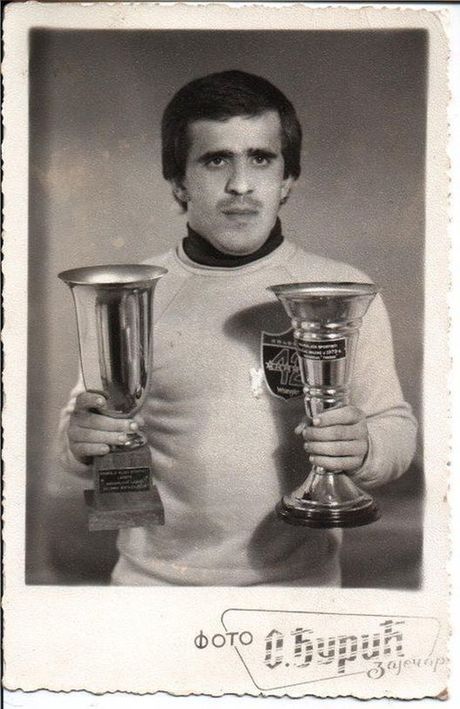
It was the same in Zajecar in the 70s and 80s. A city with then about 40-50,000 people and more than 15 factories and "strong" companies, from the famous Kristal through the Brewery to KTK, that had more than 15,000 workers employed in the local economy also had its heroes and boxing champions, and one of the greatest was Ljubisa Avramelovic, five-time champion of Serbia and two-time vice-champion of former Yugoslavia.
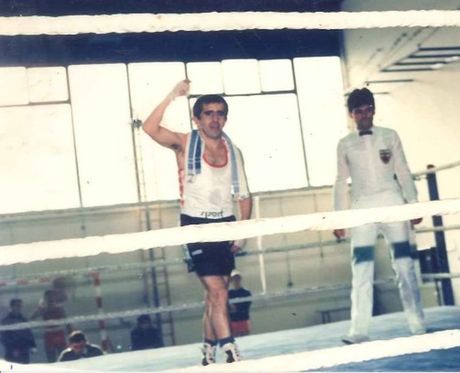
The popular Brka, a boxing champion and a boxer in life, went through the thorns to the stars, but the circumstances of his fate saw to it that unlike his famous colleagues he ended up in the streets, as a worker of the city utility company. When we spoke two years before, in addition to the job that he does in the most honorable job, he volunteered as a coach in a boxing club. We agreed then to resume and tell his life story, so that it would not be forgotten. This time, we meet in a neighborhood that he cleans all on his own, and in which he feels "most at peace."
"Nothing's changed in these two years. I still work 8 hours, for the same company. I am currently cleaning the entire neighborhood of Kljuc 3, removing papers and leaves. I have two more years until retirement, when I turn 65," the always sincere Brka begins his story, as he empties street bins, one after the other:
"I'm an ordinary man. I've done all kinds of jobs during my life. And boxing? That used to be. It was a long time ago, so it is forgotten. I boxed for 16 years. I also worked as a coach not getting paid a penny. I'm no longer with the club, I left at the same time as the coach who discovered me and with whom I worked. I can't stand to be humiliated by those who stayed there."
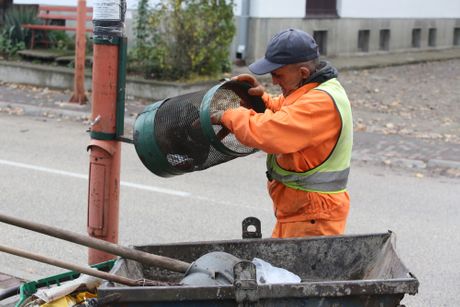
The fate of a boxer - from the stars to the streets
And indeed, after a career that lasted from 1975 until 1990, the five-time champion of Serbia and two-time vice-champion of Yugoslavia did not even dream that he would now live this rough. However, he says, he experienced the "fate of a boxer."
"As time went by, I realized that what awaits many boxers awaited me. There were those who were class, great club boxers. As soon as they finished their careers, everyone neglected them. That happened to me too. Even then, it was not possible to make a living from boxing, but life was better. The premiums were much better."
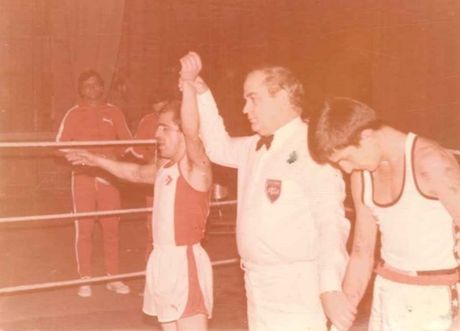
After 350 matches, where he had only 38 defeats and 4 draws, numerous plaques, awards, cups, medals, certificates of appreciation and diplomas, he ended his career in the early 1990s, an era that brought with it war, poverty and inflation.
He had to move on.
Austria was a forced solution so that his family and he could survive.
"My wife and I went first. She returned later, and I stayed. I cleaned buildings, worked in a store and slept in the basement of my boss. I also washed dishes. I was never picky about work. I was there alone, sending money to my family. After a while, because of the war, I was denied a visa, and the store where I worked shut down, so I no longer had even the basement where I was sleeping.
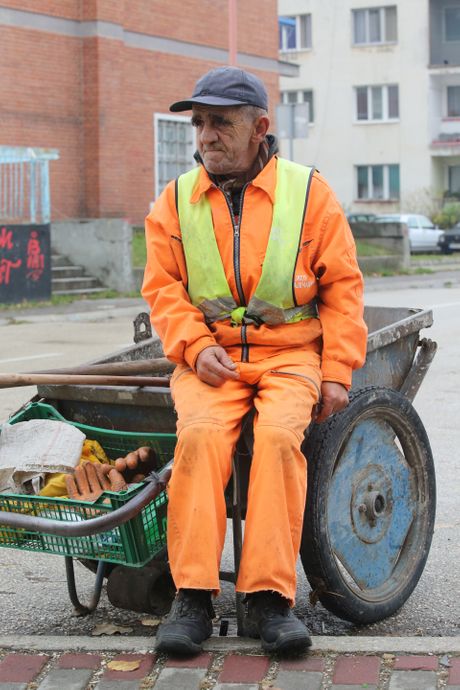
I decided to go back in 1996. But - the wife had remarried. She found another man, kicked me out. I slept next to the Timok River for three days until I found an apartment. It was April. I'd find some cardboard, put it down, lie on it, cover myself with more cardboard," Brka remembers with a lot of emotion and is, it seems, reliving those difficult moments:
"I never experienced blows as heavy in boxing as those when I came back. That you get over, this stays with you. I fell down only once during a boxing match and got up after three seconds. There have been blows in my life, but I never fell. I was a fighter. For me, hope dies last, while there is a glimmer of hope, I don't give up. That's how I survived all this.
Everyone lied to me back then. They promised me both a job and an apartment. Still, I could see none of that would happen. Every day my friends saw me in the street, asked if I still lived in that 'bread roll'. I'd tell them the truth. They'd curse, feeling miserable."
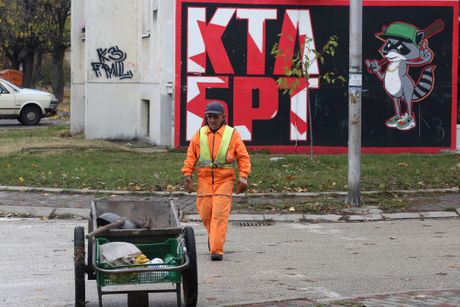
Medals hidden from everyone
Sport in Zajecar owes a sizable debt of gratitude to the diminutive boxer. But his medals and trophies are not displayed in a "place of honor" as they should be, they are not in the showcases of "private" or city museum or in his original club.
They exist, but they are hidden from everyone, so as not to "speak" about the sweat, work and the time with which they were forged.
"I took all those medals and 'threw' them in the village. They remind me of what I was and what I am now. Others always benefited from them. Me, least of all. I had to watch my behavior, after al it was true that you were 'somebody' in the town."
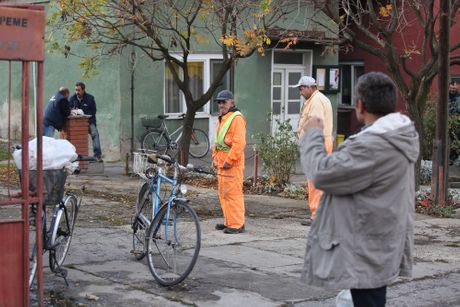
After the boxing - the street
After the trouble that befell him, he managed to "stay on his feet" and get a job as a worker with the city cleaning company. Colleagues who know him well point out that he is good natured and a great worker. Supervisors were "skeptical" when he started because of his build and physiognomy. However, they quickly realized how valuable he was. Jokes, pranks and well-intentioned calling out are an integral part of every working day for him and his colleagues who do their best to make the city cleaner. This helps them to forget, at least for a short time, the weight of the work they do.
On the other hand, he also found a place to live, where he received us. The yard is meticulously tidy, the house is modest, plastered with mud, inside there is one room that is both the kitchen, the living room and the bedroom.
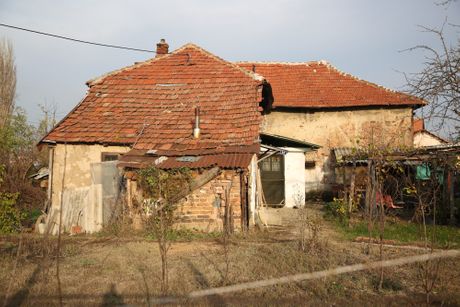
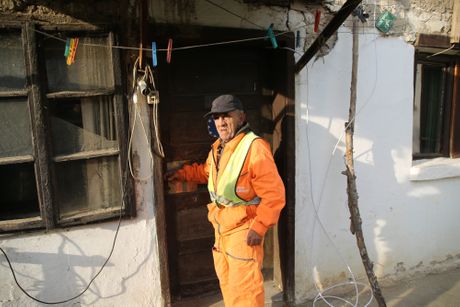
That was all that Brka could afford and pay fairly.
"This is where I live. I have been here for 20 years, since October 15, 1989. For 15 years I paid my annual rent of a hundred kilos of sugar. 50 kilos in the spring and 50 kiloss in the fall. Now I pay 10 euros and 2,000 dinars for electricity and water. It's good. I have one neighbor here, the other neighbors have left. We work together," says the ever modest boxer.
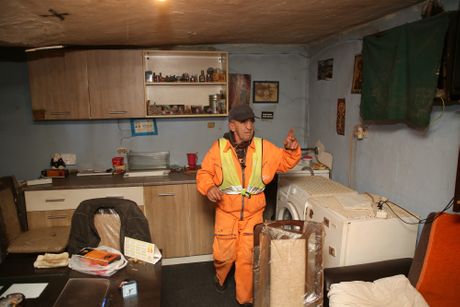
How it all started
In the life of this small in stature champion, everything starts and ends with boxing. It is the same with the story that he is slowly "unfolding" for us. As he searches for photos from his days as a champion, he talks about how and why it all started:
"I watched the audience cheer, how boxers fight and there is no retreat. Then I wanted the audience to cheer for me like that.
I am a qualified metals worker. I came to Zajecar, from my village, to go to high school. By chance, I was interning at the Arsenije Spasic factory, where my future coach Mita Zdravkovic also worked."
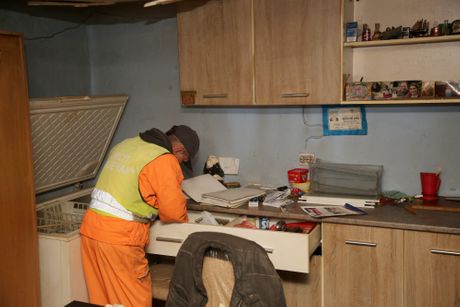
Hemorrhoids determined a champion's career
Interestingly, the illness of a colleague enabled him to make his debut in the flyweight category.
"The first 'fly' Savo Mitrovic got sick, he got hemorrhoids and could not box. They pushed me to get on the scales purely as a formality. They asked me, 'Would you like to box a little?' I could hardly wait, I said, 'A little'.
I decided to succeed. I fought the first match here against Saitovic from Subotica. The first round passes, the second passes, then the third and then a draw. Oooh - it was like I got on a spaceship. You don't remember anything, just the fight. The audience is cheering, and you are like a waterfall. You don't understand anyone, you don't hear anything. After that match of mine, that old 'fly' with hemorrhoids couldn't rejoin the team, so he had to gain weight and change his category."
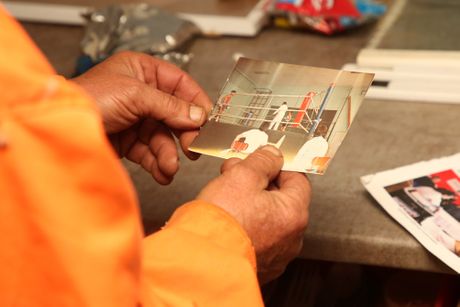
National team as the crown of work
Regardless of the fact that he was a member of the second league club Timok, an invitation to box for the national team came. He would have the opportunity to take on the best.
"I went to every show tournament. That's how they invited me to the national team. I didn't choose whether I boxed against our boxers, or Koreans, Cubans, Romanians, Bulgarians... They pushed me into the fire, because the club was in the lower divisions. They kept their best ones for easier opponents.
I wasn't afraid, but there are always the jitters. He has two arms, I have two arms, he two legs, I two legs, then, fight. The positive jitters before every match. I knew I wasn't going on an excursion. I always enter cautiously, see what awaits me and then it's over."
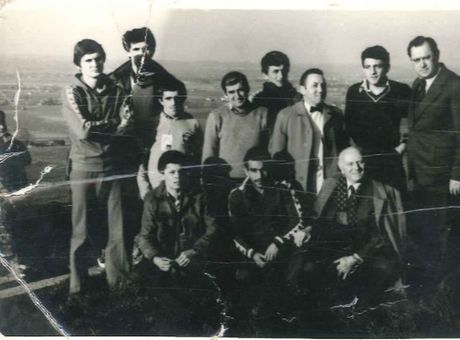
Family photo on the wall
As he speaks about his career in his dilapidated house, his gaze turns to a black-and-white photograph on the wall.
"This is a picture from 1987. That's me, that's my daughter, and that's my ex-wife."
He clumsily explains to me that, regardless of the fact she left him, the photo is dear to him.
"Well I keep it, why not? It doesn't bother me, let it be there.
I rarely look at it anyway. I don't look. That's been there for years, it's not a problem at all," he says shyly and with a lot of emotion.
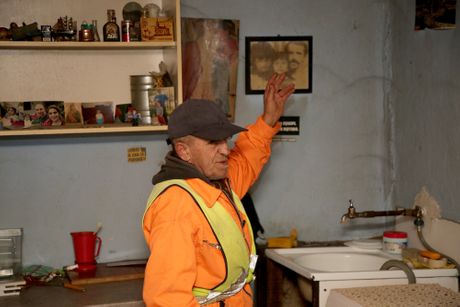
Knockout - Head in a bucket of milk
The tiny house where the former champion lives, regardless of how humble it is, has its history, geography and now its own boxing story. Brka continues about his career and explains the secret of sporting success.
"I had to train more and be fit to be able to chase and trample them. I was shorter. The secret was in training. They were able to 'walk me' around in the first round, but then they were mine. They would run out of strength.
Ehhh - what about when they knock you out? It's like dipping your head in water or milk. At first it's all dancing and blinking, then it clears up."
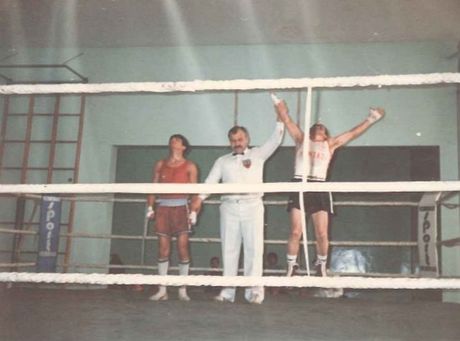
The fearsome Russian - A match that marked his career
Quite by accident, like everything in his life, he got the opportunity to box against the best in Jagodina.
"Yes, that was in 1979. Shamil Sabirov. He was the European champion then. He won the championship in Cologne in May, June of that year. He came to take part in the Golden Glove tournament. None of our people wanted to box against him, they asked me if I wanted to, and I agreed.
The venue was packed, 5,000 people. He walks in front of me, jumps up and down. They present him: 'The next fight is in the paperweight category, Shamil Sabirov, USSR, European champion'. The audience goes, 'Ahhh!' Everyone is cheering for him. The loudspeaker continues: 'His opponent is Avramelovic, Timok from Zajecar!'. The audience sighs, they had already written me off.
The coach tells me, don't worry, you are the winner. I climb into the ring. The referee is Romanian, I will never forget him. I remembered that the Russians hit hard, and I decided to try it, I lowered my guard a little, he punches me, I don't feel anything. I realized he wasn’t as strong as had been thought."
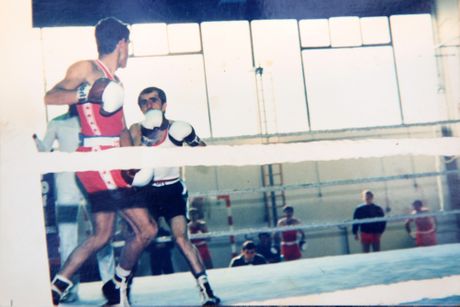
Avramelovic vs. Sabirov - A scene from the movie Rocky
A scene similar to the one from the movie Rocky, in which the main character is boxing against the Russian Ivan Drago, followed next.
"I went against him. The audience got excited. I wore a white shirt. At that moment, they started cheering for me. They start shouting, 'White, White', in the second round they're already chanting: 'Yugoslavia, Yugoslavia'. I shove him into a corner, and a then series of punches against him.
The audience is on their feet, they know boxing in Svetozarevo (Jagodina). The referee says, 'Stop', I thought he would count for him now, but he just pulls him out of the corner. In the end, the domestic judge gives victory to him, and the foreigner to me. I lose 3-2."
Olympics as a never-realized dream
Interestingly, Sabirov was the only one who won gold for the USSR at the Olympic Games in Moscow in 1980, which was seen as a scandalous result for that team.
If Brka had been there, maybe the Russian wouldn't have gotten famous, either. But, the Serbian boxer faced more bad luck.
"These people from Zajecar didn't want to let me join Radnicki Belgrade. The head coach called me and said that I had to be a member of a first league club in order to have the right to go to the Olympic. Timok would not let me leave. If I left, they would have handed me a year's ban. They told me that boxing in Zajecar would shut down."
Boxing in Zajecar has not stopped, at least not completely. On the other hand, Brka didn't get to live out his dream of Moscow and the Games, which could have completely turned his life around, as happened to his famous, perhaps his greatest opponent, Shamil Sabirov, who enjoys the status of a legend in Russia.
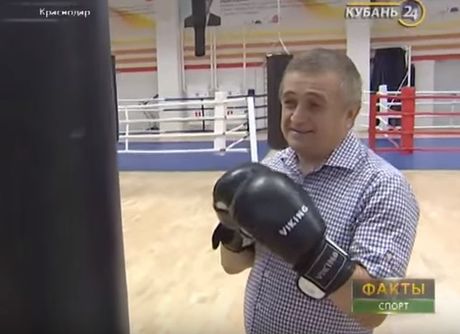
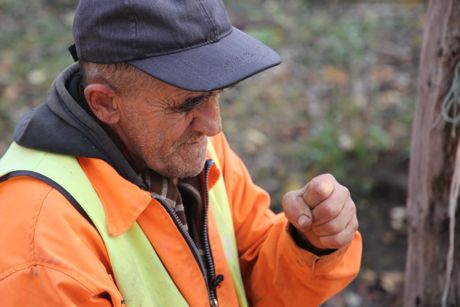
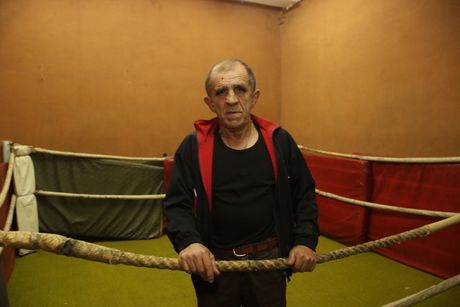
There are no regrets, only hope
He traveled to Russia, Ukraine, France, Bulgaria, Romania. He toured the whole of Yugoslavia. He was left with nothing, falling and getting up. And he says he wouldn't change anything.
"I don't regret taking up boxing. While you are good, they pat you on the back, then they forget you.
Muhammad Ali? It's a boxing fairy tale. There will only be one like that in 1,000 years. I was with the A national team, with perhaps the best fighters we had. There was Sacirovic, world champion, Ristic, world champion, Labudovic from Radnicki, Rusevski from Kumanovo, Mehmed Bugojevci from Pristina, world champion, Mirko Petkovic, Perunovic, the Kacari brothers, Salihu. I learned a lot from all of them."
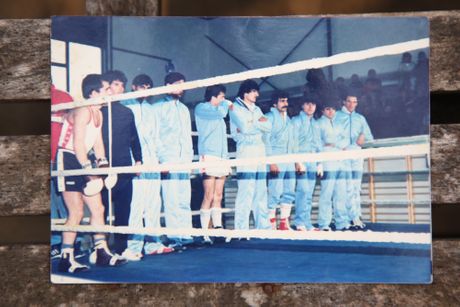
Family is everything
Unlike some of his colleagues, he did not earn millions. The glory that is being talked about remains, as does his fate. For many, it would be tragic, but not for him. Brka managed to find his happiness.
"My daughter is here, I play with my granddaughter. I know nothing will come of everything that others have promised me. Whenever I can, I spend time with my granddaughter. I go to her, or she comes to me, and we play. She is the boss and whatever she says I do. Grandpa, I want this and that. I'm the best grandfather now.
I have some advice for all boxers, to look out for themselves first, to have a job and to take care of their family. Family is above everything. Boxing lasts a year, two, five, ten. This remains," Brka says, and tells us, lost in thought:
"You know, I took my medals and cups to the village and threw them away. It hurts when I look at them. If my granddaughter wants, I'll show them only to her, when she grows up. To see who her grandfather was, after all."
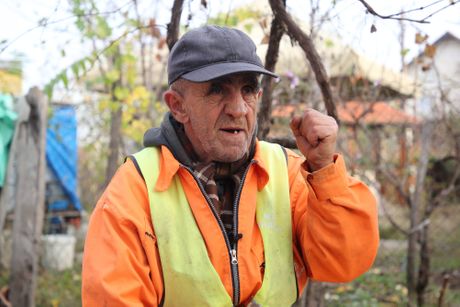

Video: Pagonis: Its the only place Im sure no one will beat me
(Sasa Grujovic - s.grujovic@telegraf.rs/Photo: Nikola Tomic; Video: Jovica Vuckovic)
Video: Slaven Došlo o mjuziklu "Balkan ekspres": To je priča o malim ljudima koji pokušavaju da prežive
Telegraf.rs zadržava sva prava nad sadržajem. Za preuzimanje sadržaja pogledajte uputstva na stranici Uslovi korišćenja.

